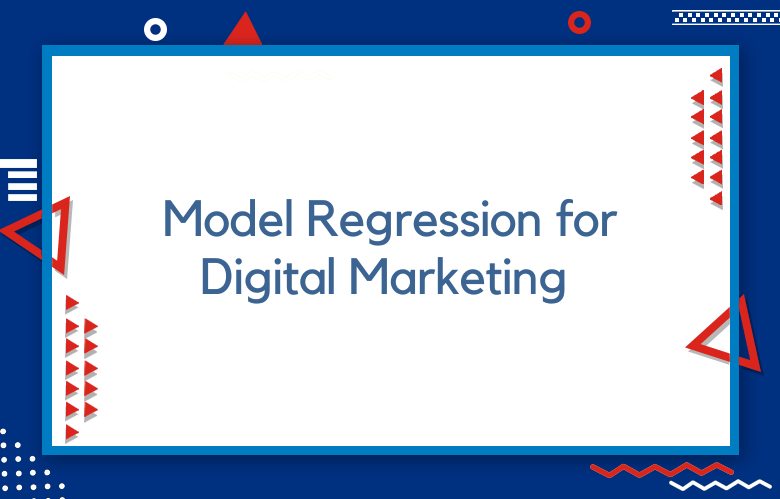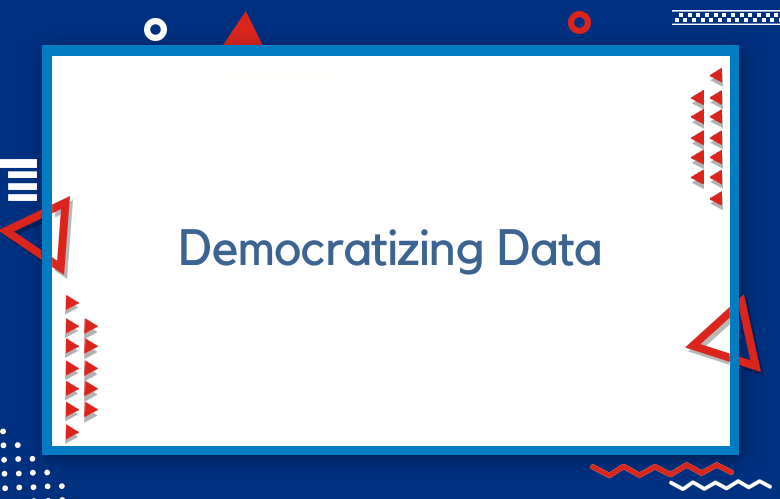Model Regression for Digital Marketing Fundamentals & Strategies

Regression models are a cornerstone in the analytics toolkit for digital marketing, offering a powerful means to quantify and predict the relationships between various marketing variables and outcomes. By understanding these relationships, digital marketers can make informed decisions, optimize campaign performance, and enhance customer engagement strategies.
Model Regression for Digital Marketing Fundamentals & Strategies
At its core, regression analysis involves identifying the dependent variable (the outcome you want to predict, such as sales volume, website traffic, or conversion rate) and one or more independent variables (predictors like advertising spend, email open rates, or social media engagement) that are believed to influence the outcome. The goal is to develop a mathematical model that best describes the relationship between these variables.
The most straightforward form, linear regression, assesses this relationship in a straight-line format, ideal for continuous data where the outcome changes proportionally with the predictors. However, digital marketing often deals with more complex, non-linear relationships and categorical outcomes (e.g., purchase or no purchase). In such cases, logistic regression or polynomial regression might be more appropriate, offering a way to model binary outcomes or non-linear relationships, respectively.
Advanced regression techniques, such as ridge or lasso regression, help manage scenarios with numerous predictors or when multicollinearity (when independent variables are highly correlated) is present. These methods add penalties to the regression model, reducing the risk of overfitting and improving prediction accuracy.
In practice, regression models in digital marketing can unlock insights into customer behavior, forecast the impact of marketing campaigns, inform budget allocation, and predict market trends. For instance, they can reveal how different marketing channels contribute to conversions or how changes in ad spend might affect lead generation.
Implementing regression models requires careful consideration of data quality, model selection, and continuous validation to ensure the predictions remain accurate and relevant. As such, it’s an iterative process, demanding ongoing refinement and adaptation to the dynamic digital marketing landscape. By integrating regression analysis into their strategy, digital marketers can leverage data-driven insights to drive growth and build competitive advantage.
- Key Takeaways
- Fundamentals of Regression Analysis
- Regression Analysis in Digital Marketing
- Developing Linear Regression Models
- Implementing Regression in Marketing Strategies
- Linear Regression for Social Media Ads
- Assessing Model Effectiveness
- Benefits of Regression Analysis
- Limitations of Regression Analysis
- Closing Thoughts
- Frequently Asked Questions
- What is Regression Analysis in Digital Marketing?
- How can Linear Regression Models benefit digital marketing strategies?
- What are the key steps involved in developing a Linear Regression Model for digital marketing?
- How does implementing Regression Analysis enhance marketing strategies for social media ads?
- What are the limitations of using Regression Analysis in digital marketing?
Want to supercharge your digital marketing strategy? Dive into the world of model regression for digital marketing. Harnessing the power of data analytics, this cutting-edge approach unlocks valuable insights to optimize campaigns, drive conversions, and maximize ROI. By leveraging predictive modeling techniques, you can fine-tune your targeting, personalize content, and stay ahead of the competition. Say goodbye to guesswork and hello to precision in decision-making. Ready to revolutionize your marketing game? Let’s explore how model regression can elevate your digital efforts and propel your brand towards success.
Key Takeaways
- Understand the fundamentals of regression analysis to effectively analyze relationships between variables.
- Apply regression analysis in digital marketing to predict and optimize marketing outcomes based on historical data.
- Develop linear regression models by selecting relevant variables and interpreting coefficients to make informed marketing decisions.
- Implement regression in marketing strategies to forecast sales, customer behavior, and campaign performance accurately.
- Utilize linear regression specifically for social media ads to determine the impact of ad spend on conversions and engagement metrics.
- Assess the effectiveness of regression models by evaluating metrics like R-squared and residual plots to ensure reliable predictions.
Fundamentals of Regression Analysis
Definition
Regression analysis is a statistical technique used in modeling relationships between variables, predicting outcomes based on input data.
Regression analysis has a rich history, with roots in the 19th century. It gained prominence in various fields like astronomy, biology, and geology.
Method of Least Squares
The method of least squares is pivotal in regression analysis. It aims to minimize the sum of squared differences between observed values and those predicted by the model.
This method plays a crucial role in determining the best-fitting line through data points. By minimizing errors, it allows for accurate predictions and insights.
Regression Analysis in Digital Marketing
Customer Insights
Regression analysis plays a crucial role in digital marketing by providing valuable insights into customer behavior and preferences. By analyzing data points across various touchpoints, businesses can gain a deeper understanding of the customer journey.
Businesses utilize regression analysis to identify patterns and trends in customer interactions with their digital assets. This helps in tailoring marketing strategies to target specific customer segments more effectively.
Professional Expertise
Professionals skilled in regression analysis are essential for conducting accurate and meaningful analyses in the realm of online marketing. Their expertise ensures that the data is interpreted correctly and that the insights drawn are actionable.
Having professionals proficient in regression analysis allows companies to make informed decisions based on solid statistical evidence. This leads to more targeted and successful marketing campaigns, ultimately improving overall ROI.
Enhanced ROI
Implementing regression analyses in digital marketing efforts can significantly enhance the return on investment for digital assets. By deriving clear and tangible results from these analyses, businesses can optimize their marketing strategies for maximum effectiveness.
The insights gained from regression analyses enable businesses to allocate resources efficiently, focusing on channels and campaigns that yield the highest returns. This optimization leads to improved conversion rates and increased revenue generation.
Developing Linear Regression Models
Concept Overview
Linear regression is a statistical technique used to model the relationship between a dependent variable and one or more independent variables. It is commonly employed in digital marketing to analyze how different factors impact outcomes like sales or website traffic. This model assumes a linear relationship between the variables, making it a valuable tool for predicting future trends based on historical data.
Steps in Model Development
Data Preparation
Before creating a linear regression model, it is crucial to clean and preprocess the data. This involves handling missing values, removing outliers, and ensuring data quality to improve the accuracy of the model.
Model Building
Next, select the appropriate variables that are likely to influence the dependent variable. By choosing relevant predictors, you can enhance the model’s predictive power and make informed decisions based on the analysis.
Model Evaluation
After building the initial model, evaluate its performance using metrics like R-squared and Mean Squared Error (MSE). These measures help assess how well the model fits the data and predict future outcomes accurately.
Model Adaptation
If necessary, refine the model by adding or removing variables to improve its effectiveness. Regularly updating and refining the model ensures its relevance and reliability over time.
Importance of Model Selection
- Choosing the right type of regression model is critical for accurate predictions in digital marketing campaigns.
- Selecting relevant explanatory variables that have a significant impact on the outcome improves the precision of the analysis.
- Optimizing the model by fine-tuning parameters enhances its ability to capture complex relationships within the data.
Implementing Regression in Marketing Strategies
Validating Models
Regression analysis plays a crucial role in optimizing investments and sales in digital marketing. By implementing regression models, marketers can forecast trends and make informed decisions. The process involves validating these models to ensure their accuracy.
When it comes to validating models, marketers assess the performance of the regression model by comparing predicted values with actual data points. This step helps in identifying any discrepancies or errors that need to be addressed. Marketers can use techniques like cross-validation to test the model’s robustness.
Forecasting Values
Forecasting values through regression analysis is essential for making effective marketing decisions. Marketers rely on these forecasts to allocate budgets efficiently and target the right audience segments. By analyzing historical data trends, regression models can predict future outcomes with a certain level of confidence.
In digital marketing, accurate forecasting is key to maximizing ROI and achieving campaign objectives. Marketers use regression analysis to estimate variables such as customer lifetime value or purchase likelihood. These insights enable them to tailor marketing strategies for better engagement and conversion rates.
Minimizing Errors
Minimizing errors in regression analysis is critical for the success of marketing campaigns. Marketers strive to achieve high accuracy levels in their forecasts to avoid costly mistakes and optimize campaign performance. By fine-tuning regression models and refining data inputs, errors can be reduced significantly.
One way to minimize errors is by regularly updating and re-evaluating the regression model based on new data trends. Marketers should also consider factors like seasonality, market dynamics, and consumer behavior patterns when refining their models. This iterative process ensures that the regression analysis remains relevant and reliable over time.
Pros of Regression Analysis
- Provides valuable insights into customer behavior
- Helps in optimizing marketing strategies for better ROI
Cons of Regression Analysis
- Requires a deep understanding of statistical concepts
- Sensitivity to outliers can impact model accuracy
Linear Regression for Social Media Ads
Application
Linear regression plays a crucial role in analyzing the effectiveness of social media ads. By utilizing this statistical technique, marketers can predict and understand how various factors impact ad performance.
Measurement
Marketers leverage linear regression to measure the impact of social media campaigns on customer engagement. This method allows them to quantify the relationship between ad spend, content quality, and audience demographics.
Benefits
Optimizing Budgets
Linear regression enables marketers to optimize ad budgets by identifying which variables contribute most significantly to campaign success.
Targeting Strategies
Through linear regression analysis, marketers can refine targeting strategies based on data-driven insights and trends.
Assessing Model Effectiveness
Methods
When evaluating regression models in digital marketing, common methods include Mean Squared Error (MSE) and Root Mean Squared Error (RMSE). These metrics quantify the difference between predicted values and actual outcomes. By calculating these errors, marketers can gauge how well their models perform.
Importance
Evaluating model accuracy is crucial for refining predictions and optimizing marketing strategies. By identifying inaccuracies, marketers can make necessary adjustments to enhance the model’s predictive power. This iterative process ensures that decisions are data-driven and lead to more effective campaigns.
Role of Validation
Model validation plays a pivotal role in ensuring the reliability of regression analyses. Through techniques like cross-validation, marketers can assess how well a model generalizes to new data. Validating models helps prevent overfitting, where a model performs well on training data but fails on unseen data.
Benefits of Regression Analysis
Data-Driven Decisions
Regression analysis enables businesses to make data-driven decisions by identifying relationships between variables and predicting outcomes based on historical data. It helps in understanding how different factors influence each other.
Improved Strategies
By utilizing regression analysis, companies can gain valuable insights into customer behavior, market trends, and other crucial aspects. This information is vital for improving business strategies and enhancing overall performance.
Forecasting Trends
The versatility of regression analysis lies in its ability to forecast trends and patterns accurately. Whether it’s predicting sales figures, consumer preferences, or market demand, regression analysis plays a pivotal role in facilitating informed decision-making.
Limitations of Regression Analysis
Assumptions
Regression analysis in digital marketing comes with its own set of limitations. One key limitation is the assumption of linearity between the dependent and independent variables. This assumption may not always hold true in real-world marketing scenarios, leading to potential inaccuracies in the model’s predictions.
Overfitting and Underfitting
Another challenge faced in regression analysis is overfitting and underfitting models. Overfitting occurs when a model captures noise in the data rather than the underlying relationships, resulting in poor generalization to new data. On the other hand, underfitting happens when a model is too simplistic to capture the complexities of the data, leading to biased results.
Interpretation Challenges
It’s crucial for digital marketers to recognize and address these limitations to ensure the reliability of their regression analyses. Failing to consider these limitations can result in misleading insights and ineffective marketing strategies. Therefore, it’s essential to approach regression analysis with caution and acknowledge the uncertainties that come with interpreting results from such models.
Closing Thoughts
You’ve now grasped the fundamentals of regression analysis and its pivotal role in digital marketing. By developing and implementing linear regression models, you can optimize your marketing strategies, especially in areas like social media ads. Assessing model effectiveness is crucial to leverage the benefits of regression analysis while being mindful of its limitations. Moving forward, consider how you can fine-tune your approach to enhance your marketing campaigns.
Incorporate regression analysis into your digital marketing arsenal to drive data-driven decisions and amplify your campaign success. Stay updated on the latest trends and tools in regression modeling to stay ahead of the curve. Remember, continuous learning and adaptation are key to thriving in the dynamic landscape of digital marketing.
Frequently Asked Questions
What is Regression Analysis in Digital Marketing?
Regression Analysis in Digital Marketing involves using statistical techniques to understand the relationship between marketing variables and outcomes, helping marketers make data-driven decisions to optimize campaigns.
How can Linear Regression Models benefit digital marketing strategies?
Linear Regression Models help marketers predict and analyze trends in consumer behavior, optimize advertising budgets, and measure the effectiveness of marketing campaigns accurately.
What are the key steps involved in developing a Linear Regression Model for digital marketing?
Developing a Linear Regression Model for digital marketing includes data collection, variable selection, model fitting, evaluation, and interpretation to derive actionable insights for improving marketing strategies.
How does implementing Regression Analysis enhance marketing strategies for social media ads?
Implementing Regression Analysis for social media ads enables marketers to identify factors influencing ad performance, allocate resources effectively, target specific audience segments, and maximize return on investment (ROI).
What are the limitations of using Regression Analysis in digital marketing?
Limitations of Regression Analysis in digital marketing include assumptions of linearity and independence, sensitivity to outliers, potential multicollinearity issues, as well as the need for continuous monitoring and updating of models for accuracy.



